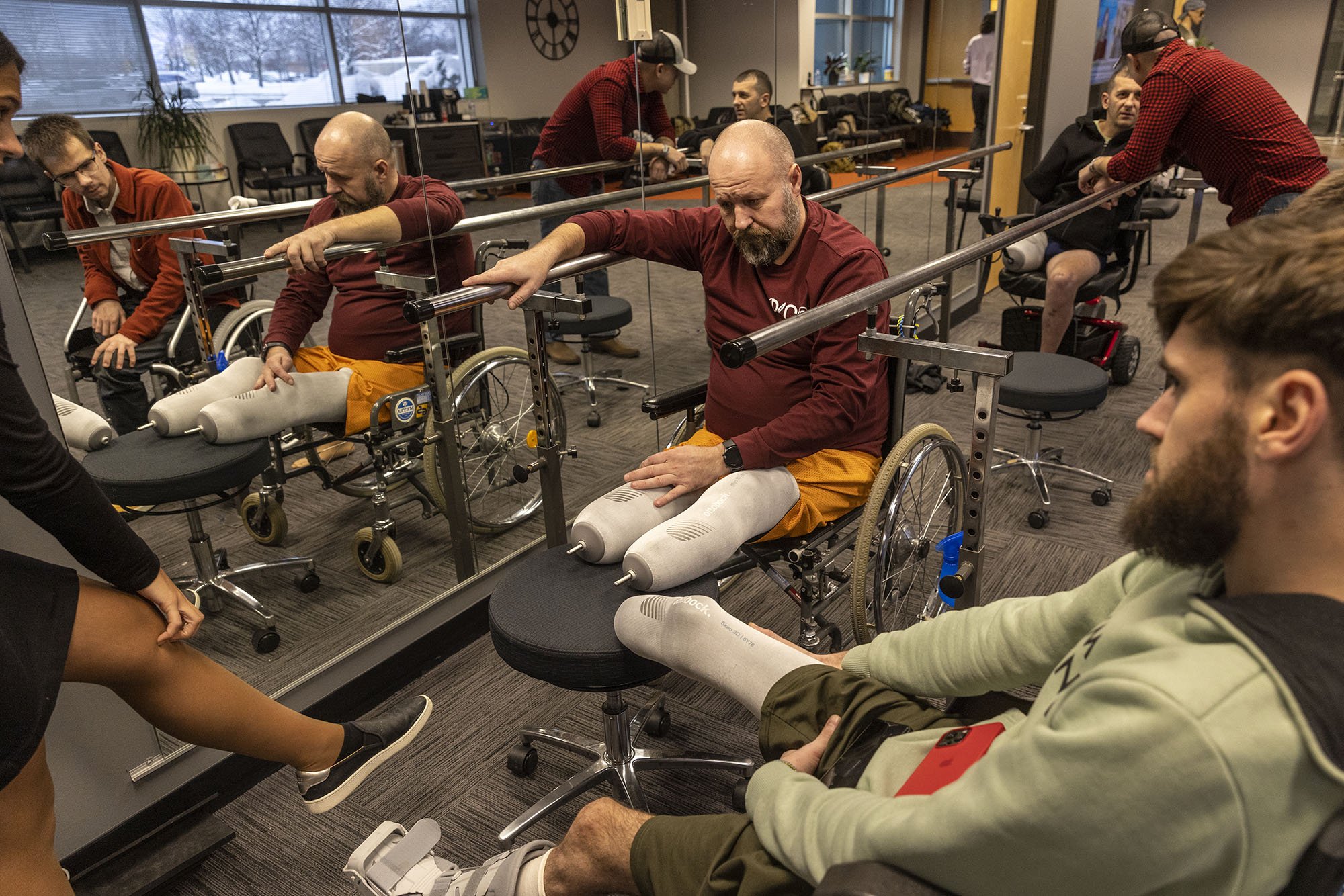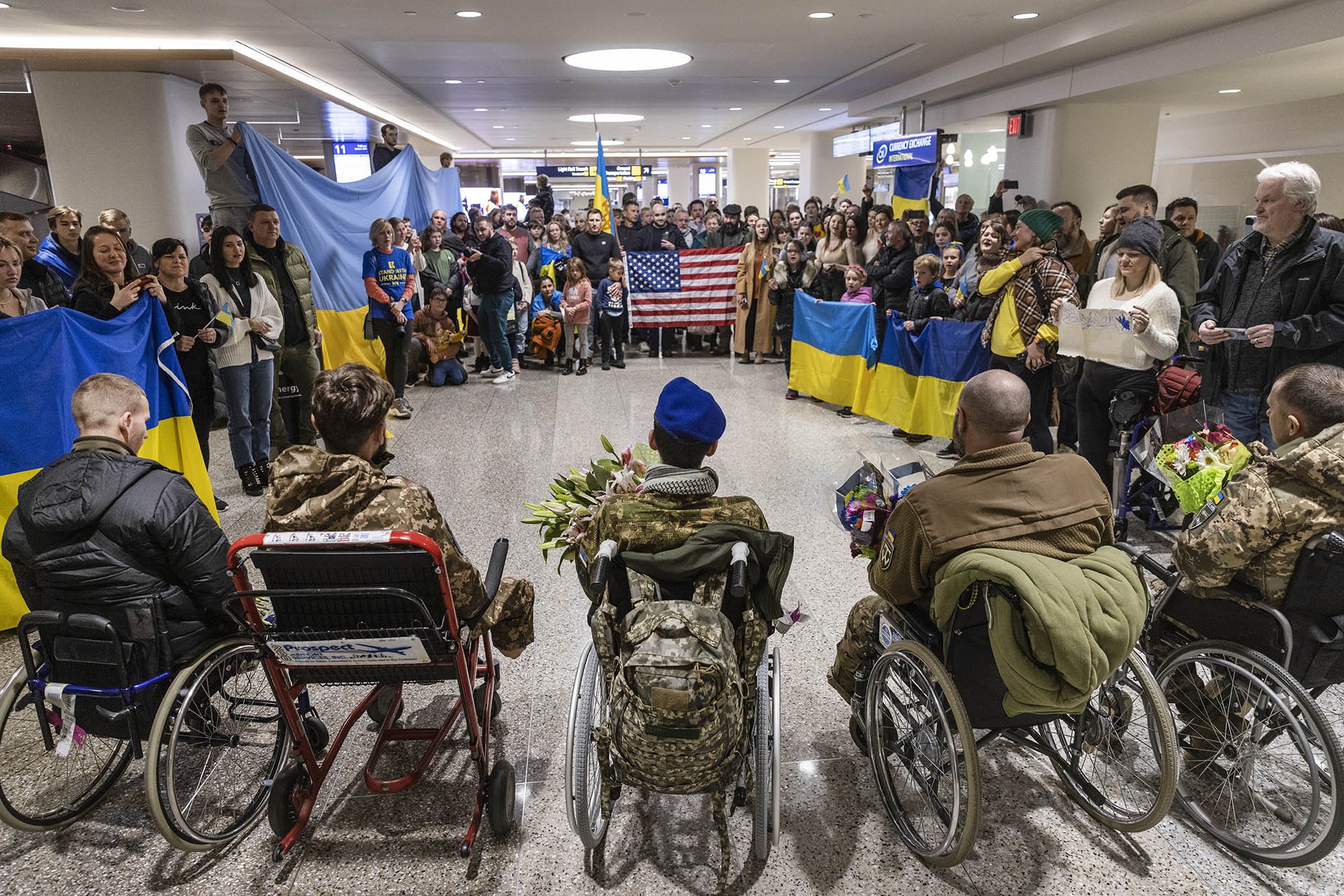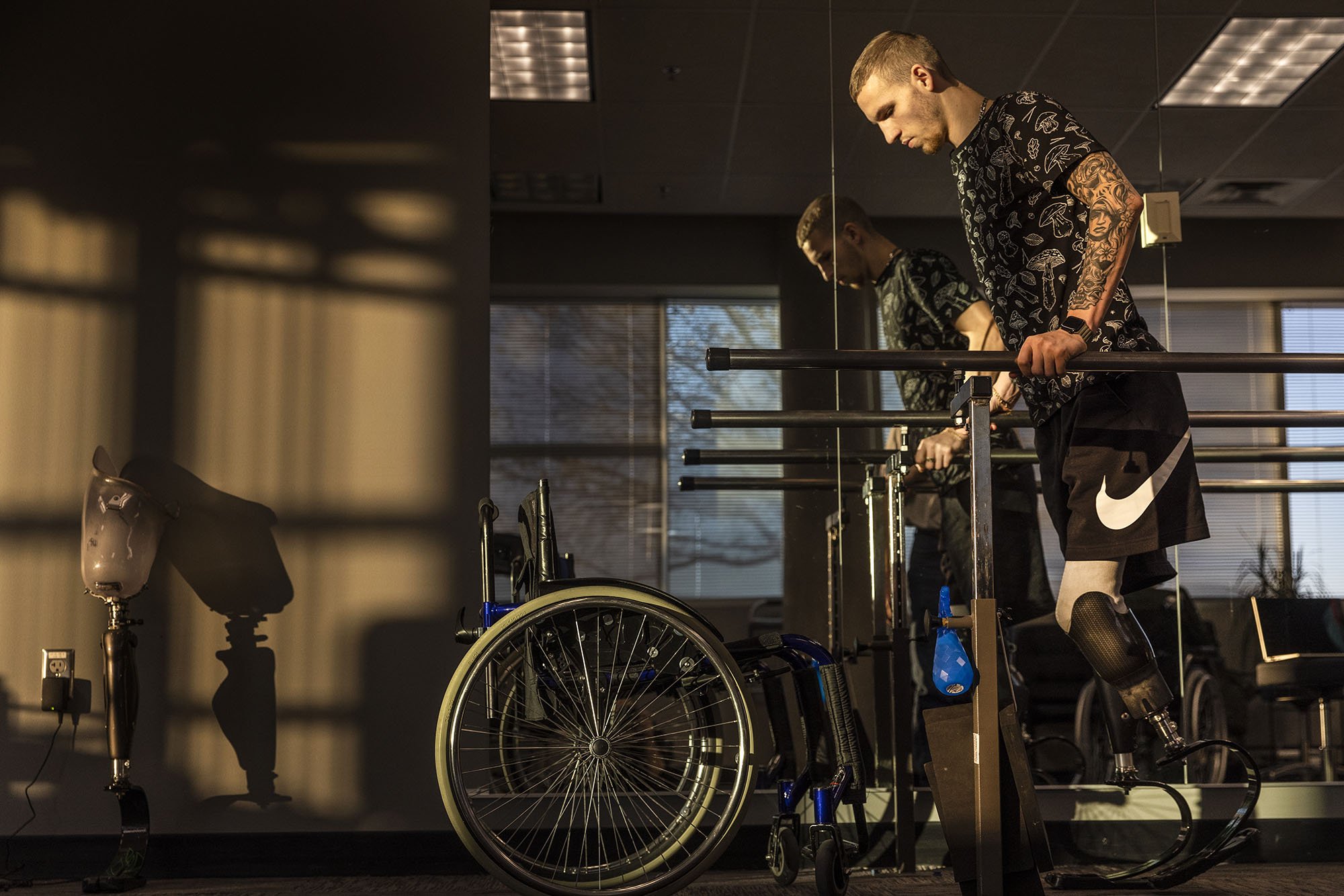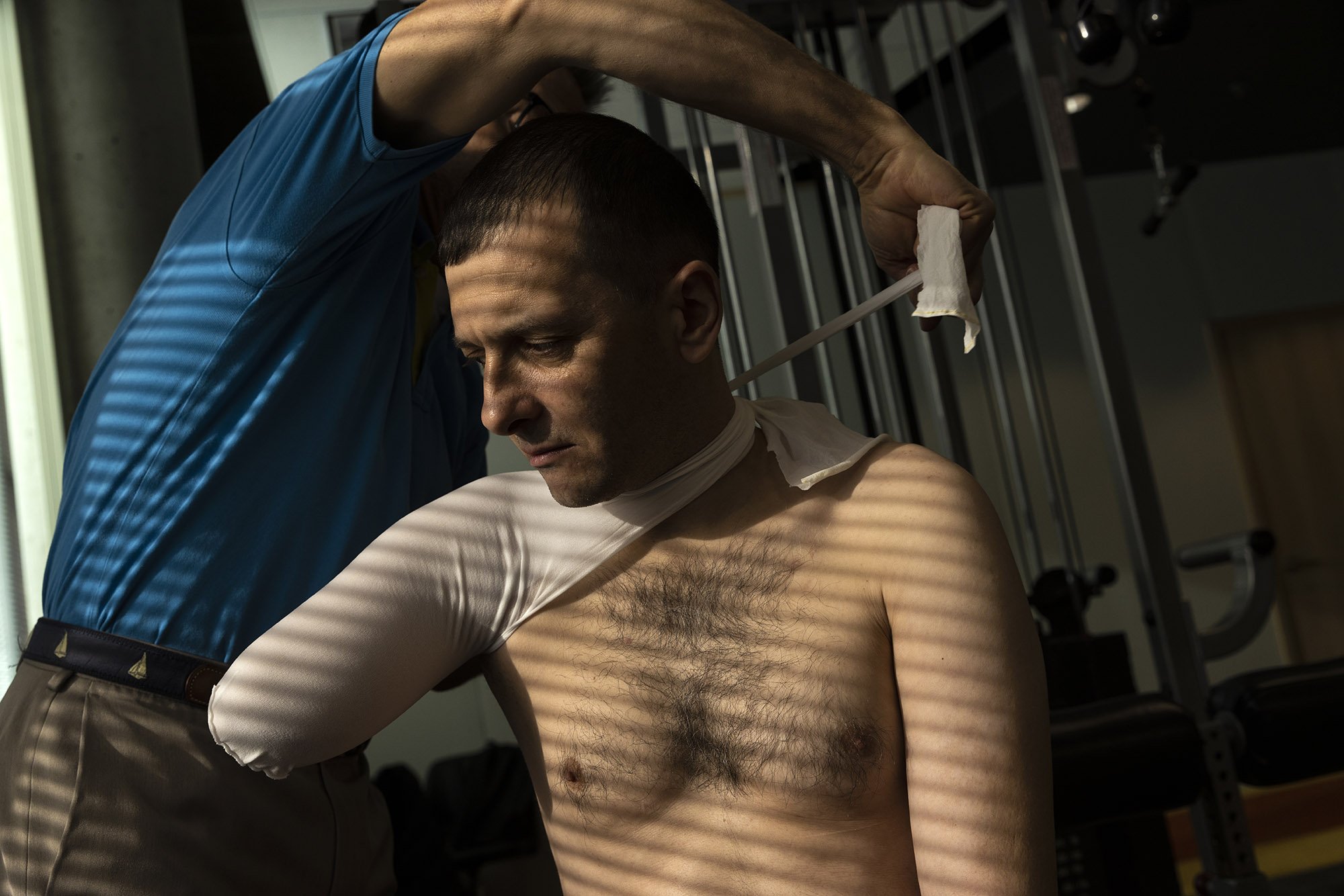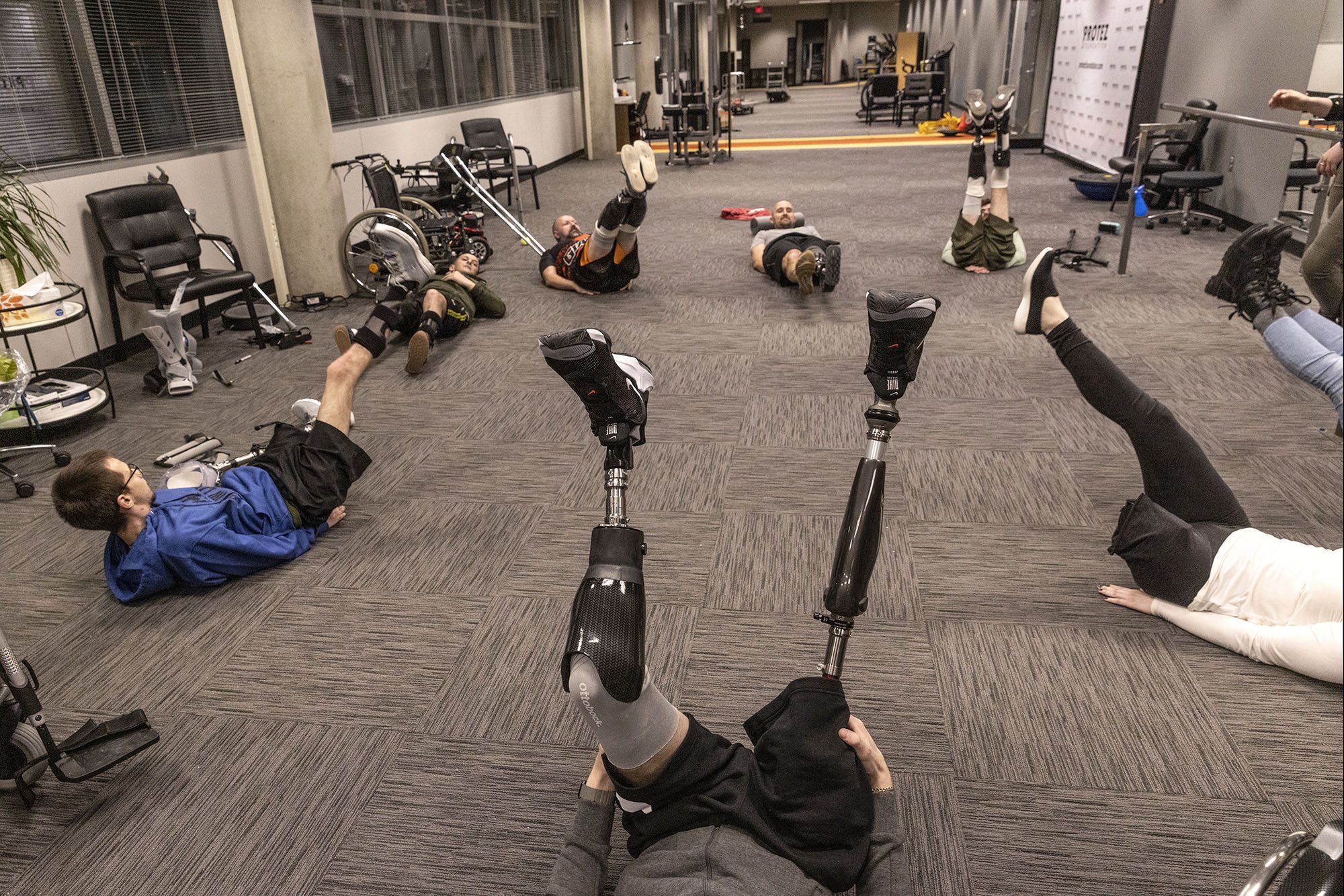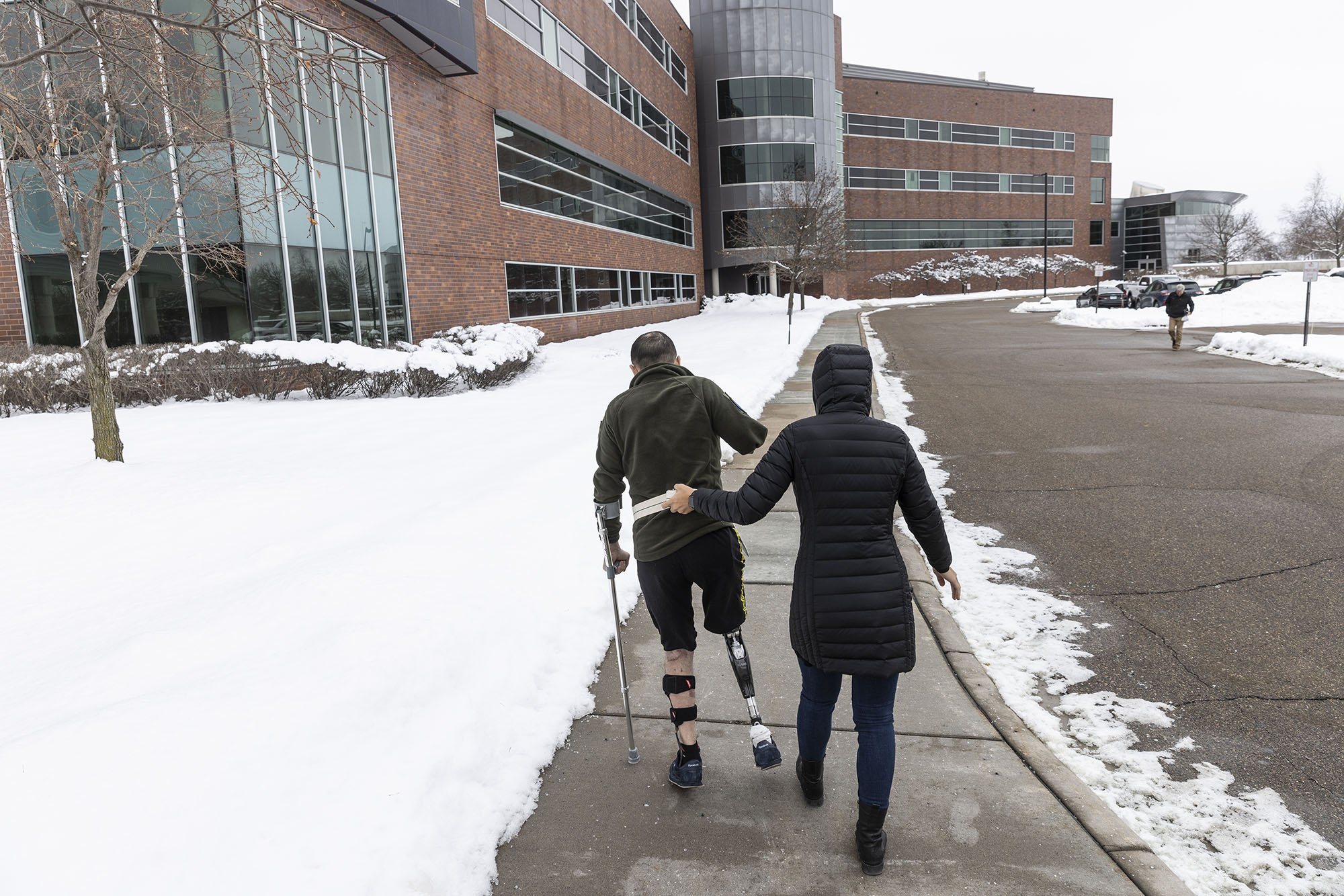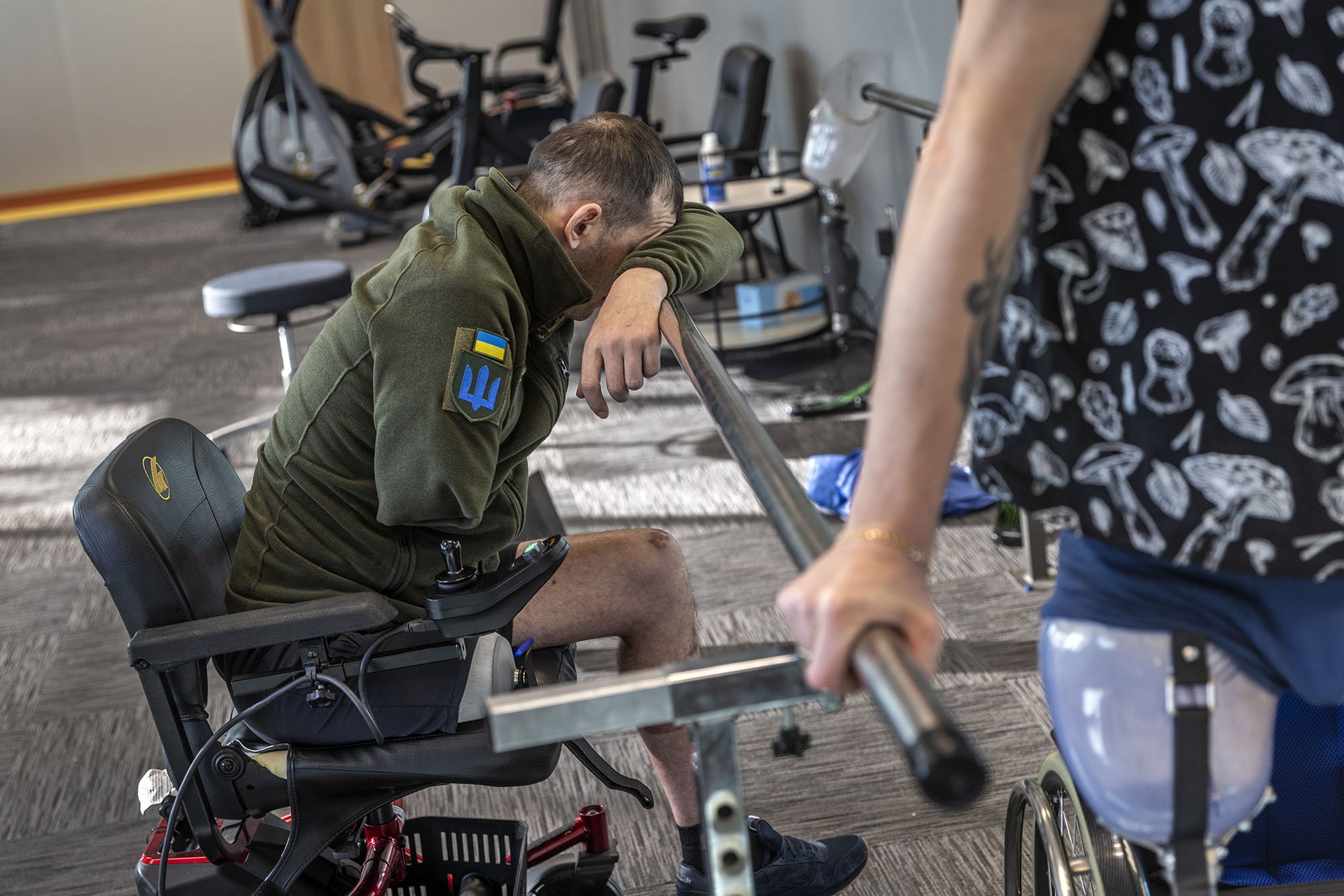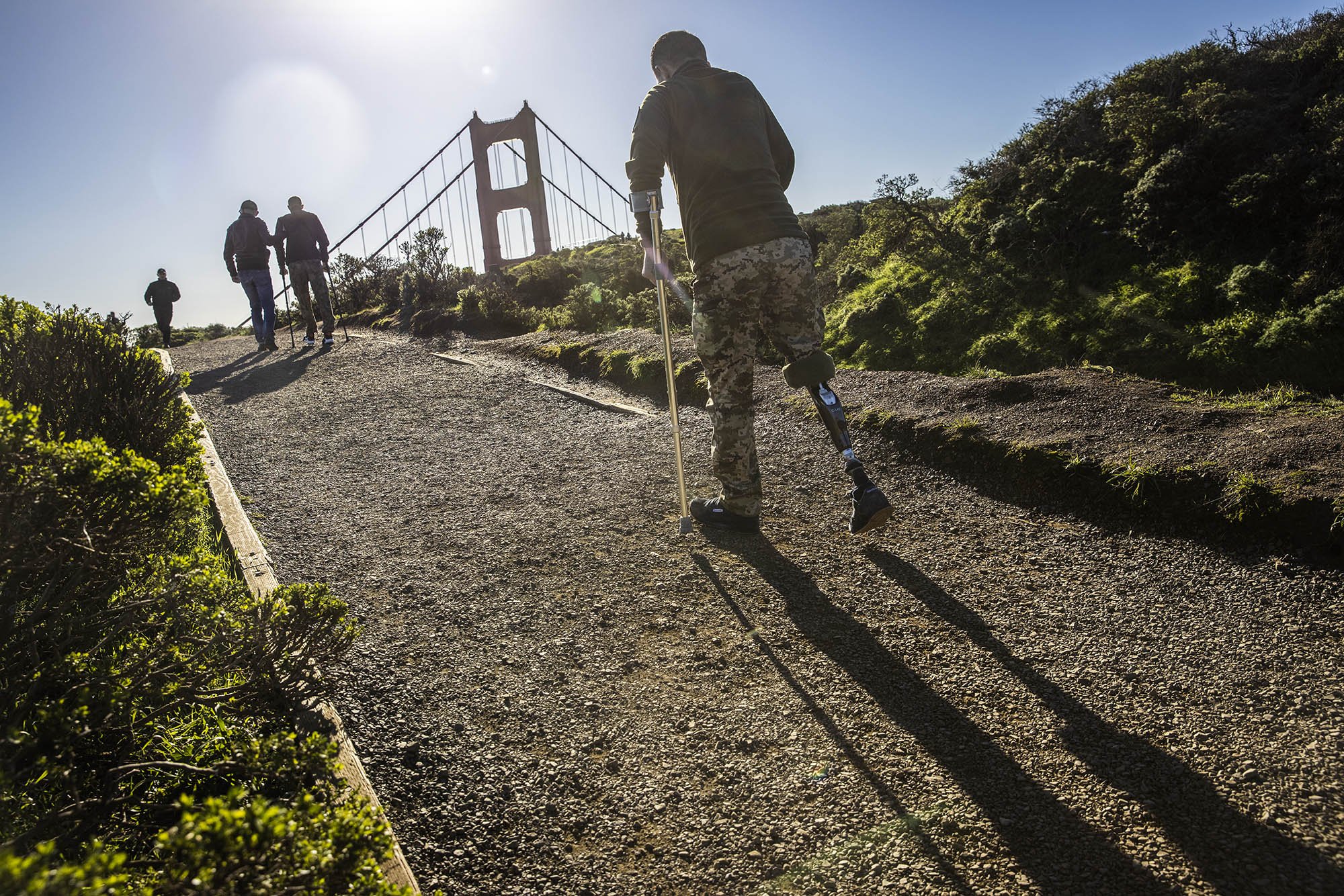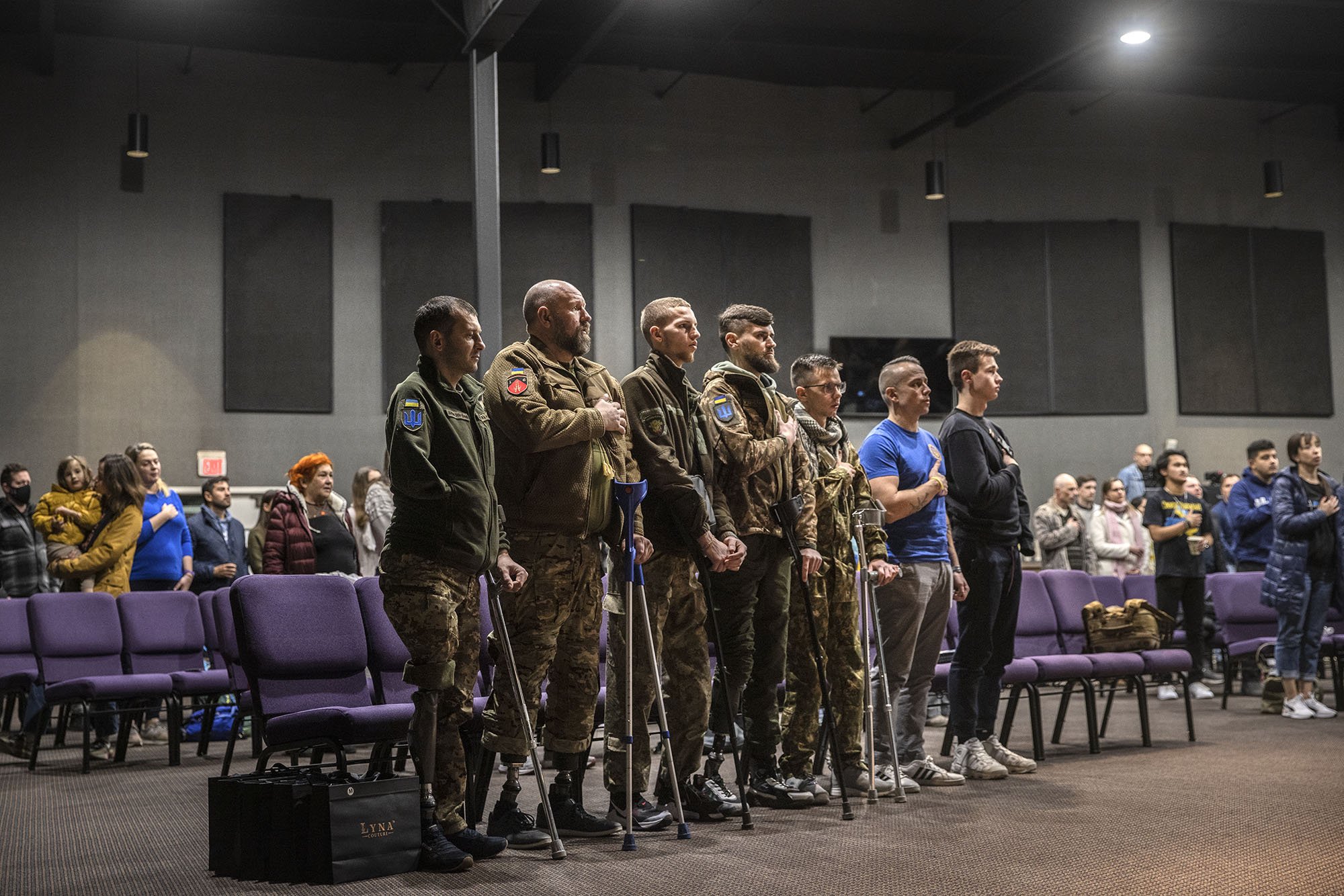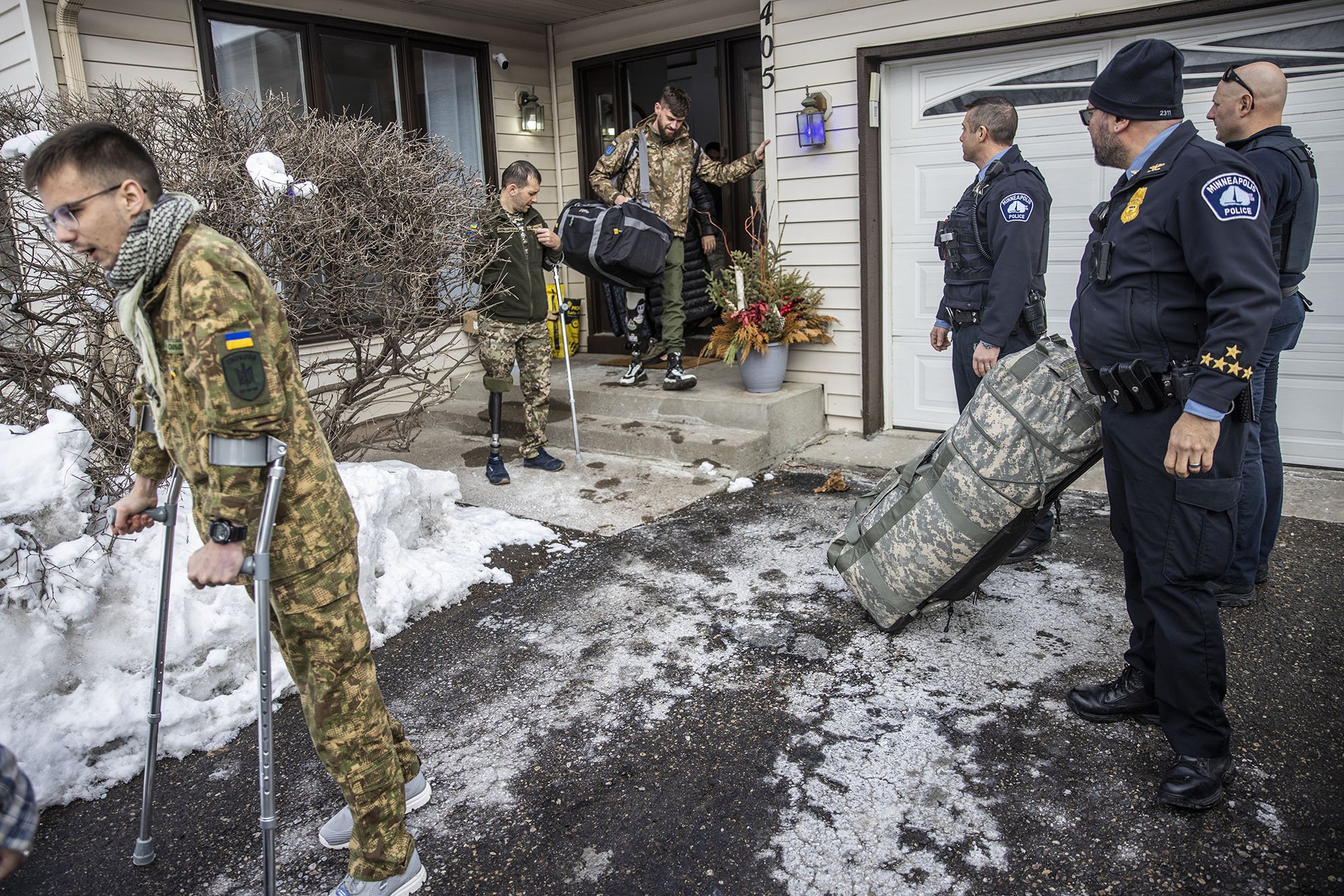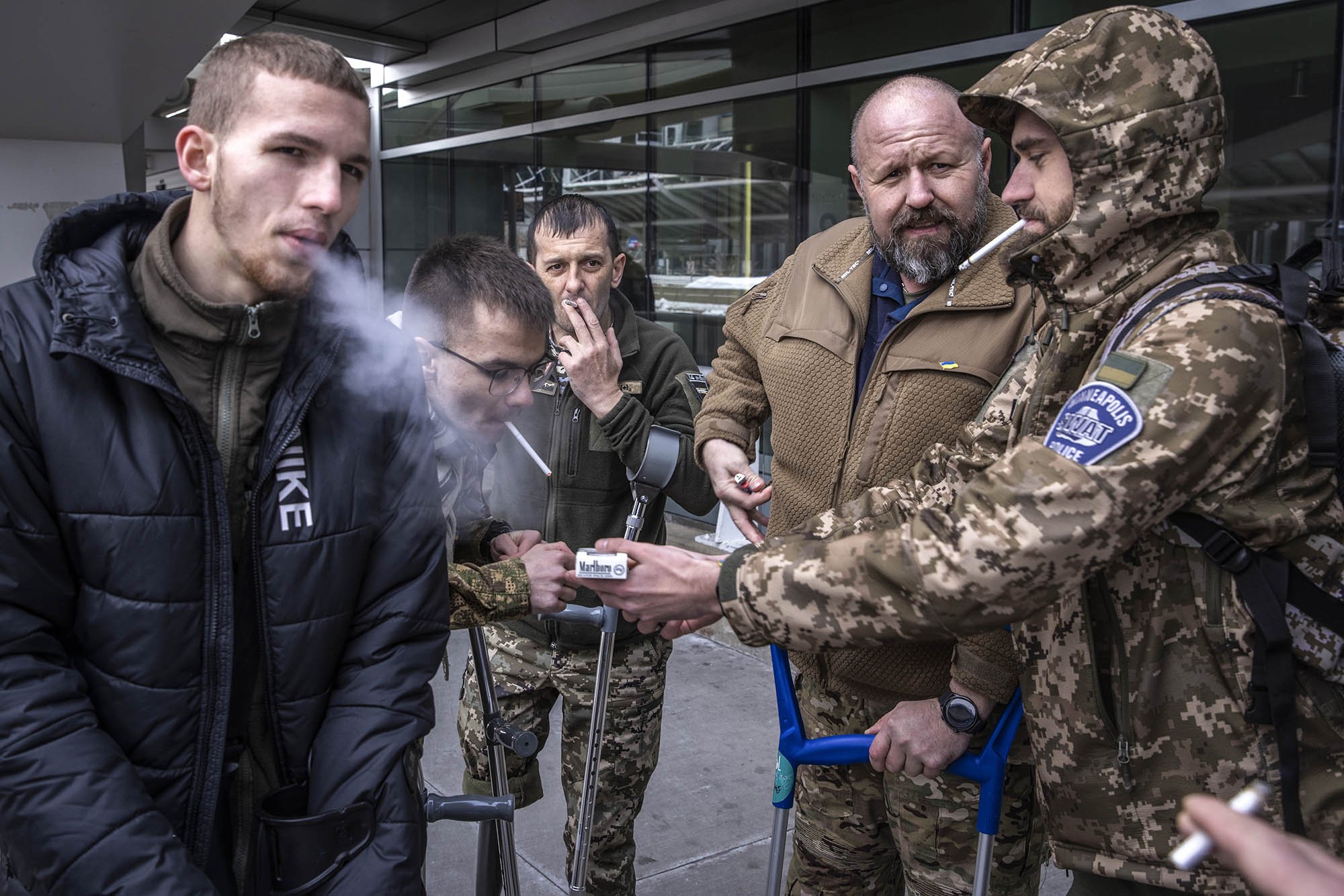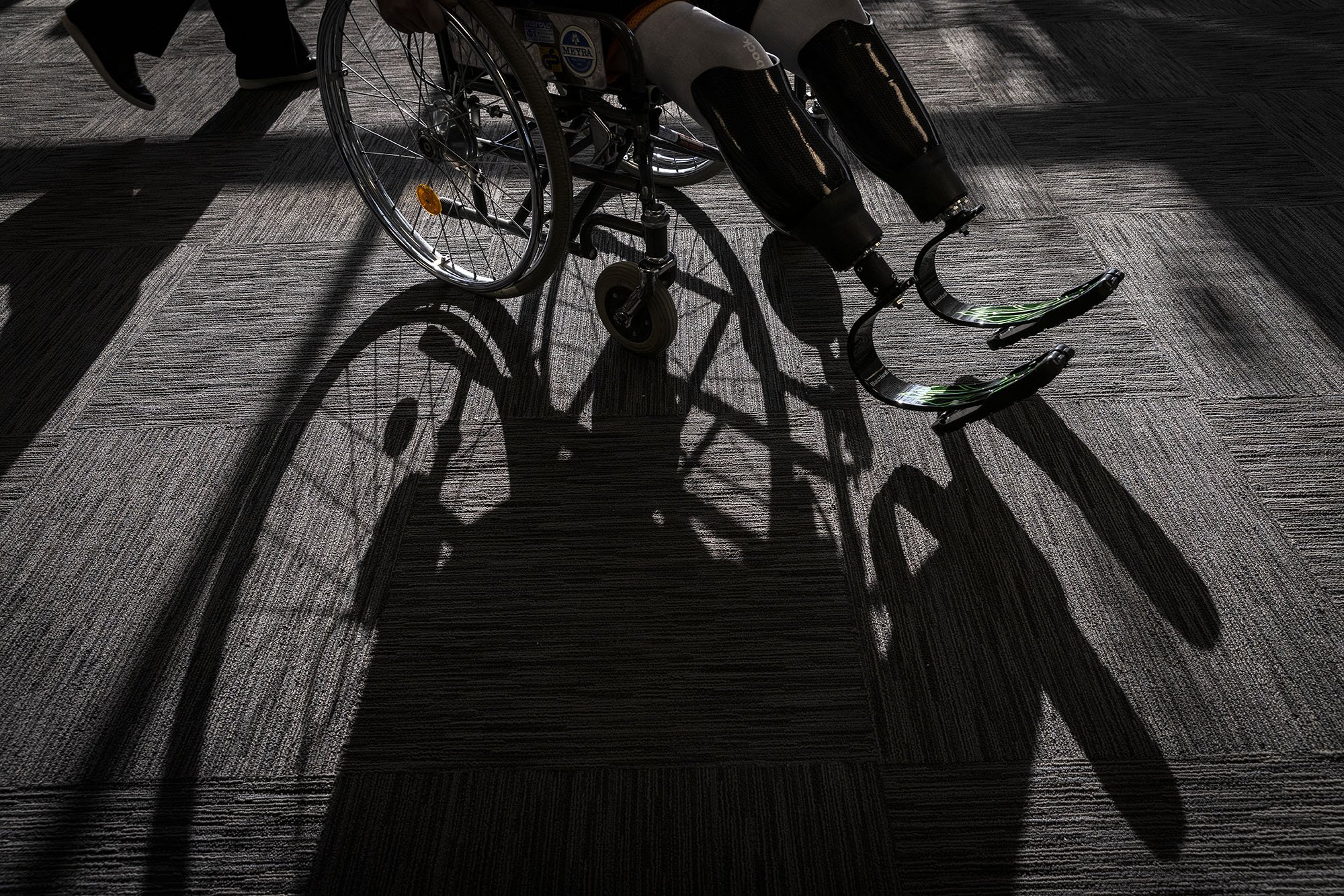From Combat in Ukraine to Rehab in Minnesota, With No Time to Waste
War has forced Ukraine to become skilled at treating amputees, but there are too many for its overtaxed medical workers. Some are finding their way to a prosthetics clinic in Minnesota.
The soldiers, still outfitted in camo, arrived not by cargo plane or armored carrier but by wheelchair, and formed up before a crowd bearing flags, flowers and the traditional loaves of bread.
There were handshakes, hugs and song — the Ukrainian national anthem, of course — and a few photos, but no long-winded speeches or squandered minutes.
This was the arrivals area of the Minneapolis International Airport, far from home. These soldiers had a lot to get done and not much time to do it.
Years of hostilities with Russia and its proxies have forced Ukraine to become skilled in the art of replacing limbs, but with full-scale war in its second year, the need has become too great for Ukraine’s medical workers alone. So since last summer, Protez, a nonprofit, has been taking in Ukrainians who have lost limbs.
By this month, almost 800 Ukrainians had signed up for help, said Dr. Yakov Gradinar, the chief medical officer at Protez. So far, the clinic has equipped almost 60 people, most of them soldiers, with prosthetic devices.
“The biggest part of their success has been their determination,” said Dr. Gradinar, who spent his early childhood in Ukraine. All of the men photographed for this article volunteered for the military after Russia invaded. “That just shows their drive,” he said.
Protez, which is about 15 miles east of Minneapolis, is not like many other prosthetic clinics, which may work with amputees for months, fitting the prosthetic devices, doing physical therapy and teaching them how to use their new limbs.
“This program lasts only three weeks or so,” said Dr. Gradinar. “It’s a greatly accelerated process: from wheelchair to walking home.”
